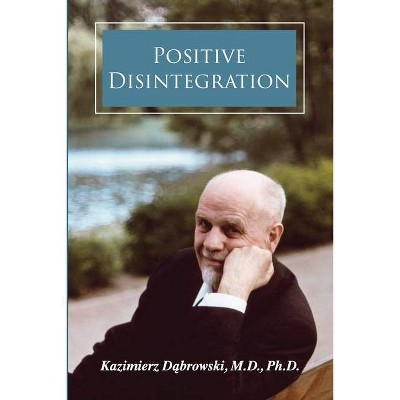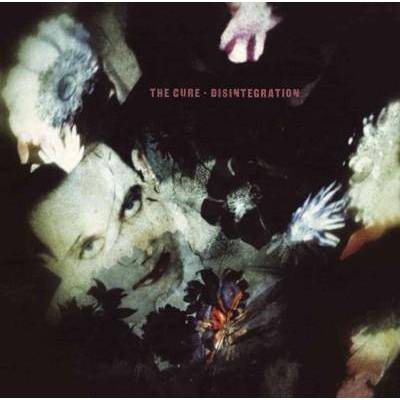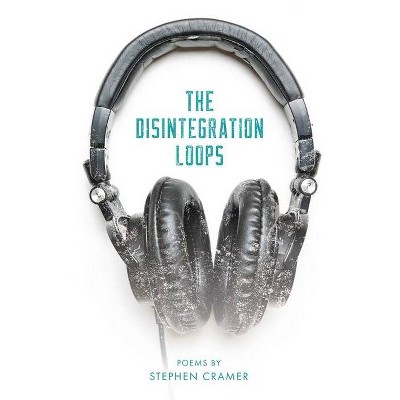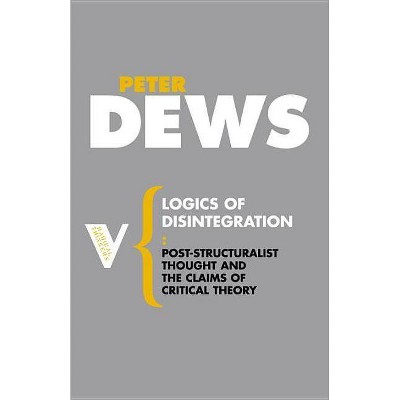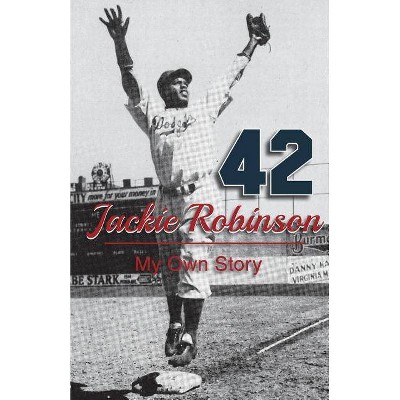Disintegration - by Eugene Robinson (Paperback)
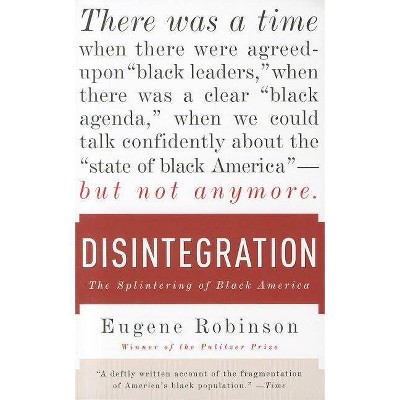
Similar Products
Products of same category from the store
AllProduct info
<p/><br></br><p><b> About the Book </b></p></br></br>Explains how years of desegregation and affirmative action have led to the revelation of four distinct African American groups who reflect unique political views and circumstances, in a report that also illuminates crucial modern debates on race and class.<p/><br></br><p><b> Book Synopsis </b></p></br></br>The African American population in the United States has always been seen as a single entity: a "Black America" with unified interests and needs. In his groundbreaking book, <i>Disintegration</i>, Pulitzer-Prize winning columnist Eugene Robinson argues that over decades of desegregation, affirmative action, and immigration, the concept of Black America has shattered. Instead of one black America, now there are four: <p/>- a Mainstream middle-class majority with a full ownership stake in American society; <p/>- a large, Abandoned minority with less hope of escaping poverty and dysfunction than at any time since Reconstruction's crushing end; <p/>- a small Transcendent elite with such enormous wealth, power, and influence that even white folks have to genuflect; <p/>- and two newly Emergent groups--individuals of mixed-race heritage and communities of recent black immigrants--that make us wonder what "black" is even supposed to mean.<p/><br></br><p><b> Review Quotes </b></p></br></br><br><p>"A deftly written account of the fragmentation of America's black population." --<i>Time</i> <p/>"[A] sober, careful and engaging consideration of phenomena that began with the official end of segregation and has of late been accelerating. . . . Those familiar with [Robinson's] style will find <i>Disintegration</i> the same blend of logical analysis and gentle humor that makes him sometimes appear to be the Most Reasonable Man in America." --<i>SF Gate</i><br><i> </i><br>"[A] bold call to action . . . [<i>Disintegration</i>] makes clear that Robinson's success, and the success of his fellow black fortunates, simply do not negate the problems of the other 30% of blacks who continue to struggle at the bottom." --<i>Los Angeles Times</i><br><i> </i><br>"The text would be useful as a young person's introduction to Race in America 101." --<i>The New Republic<br></i><br>"Readers don't have to agree with Robinson's observations to appreciate the undeniable differences within black America and to maybe want further analysis." --<i>Booklist</i> <p/>"In this clear-eyed and compassionate study, Robinson . . . marshals persuasive evidence that the African-American population has splintered into four distinct and increasingly disconnected entities. . . . Of particular interest is the discussion of how immigrants from Africa, the 'best-educated group coming to live in the United States, ' are changing what being black means." --<i>Publishers Weekly</i> <p/>In <i>Disintegration</i>, Eugene Robinson neatly explodes decades' worth of lazy generalizations about race in America. At the same time, he raises new questions about community, invisibility, and the virtues and drawbacks of assimilation. An important book. --Gwen Ifill <p/>Gene Robinson's <i>Disintegration</i> is the first popular salvo in the Age of Obama regarding the delicate issues of class division, generation gap, and elite obsession in Black America. This painful conversation must continue--and we have Gene Robinson as a useful guide. --Cornel West <p/> <p/></p><br><p/><br></br><p><b> About the Author </b></p></br></br><b>EUGENE ROBINSON</b> joined the <i>Washington Post</i> in 1980, where he has served as London bureau chief, foreign editor, and, currently, associate editor and columnist. He was a Nieman Fellow at Harvard, and in 2009, Robinson was awarded the Pulitzer Prize for distinguished commentary. <i>Disintegration</i> is his third book.
Price History
Price Archive shows prices from various stores, lets you see history and find the cheapest. There is no actual sale on the website. For all support, inquiry and suggestion messages communication@pricearchive.us

